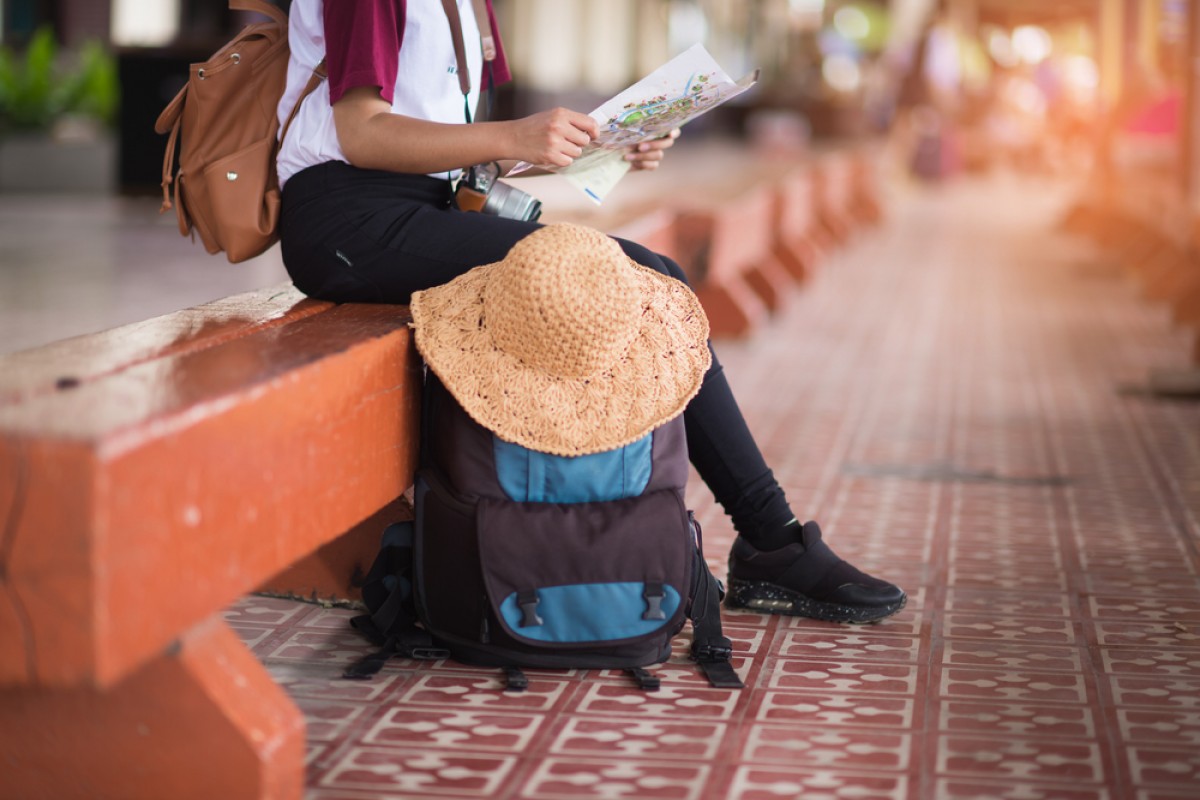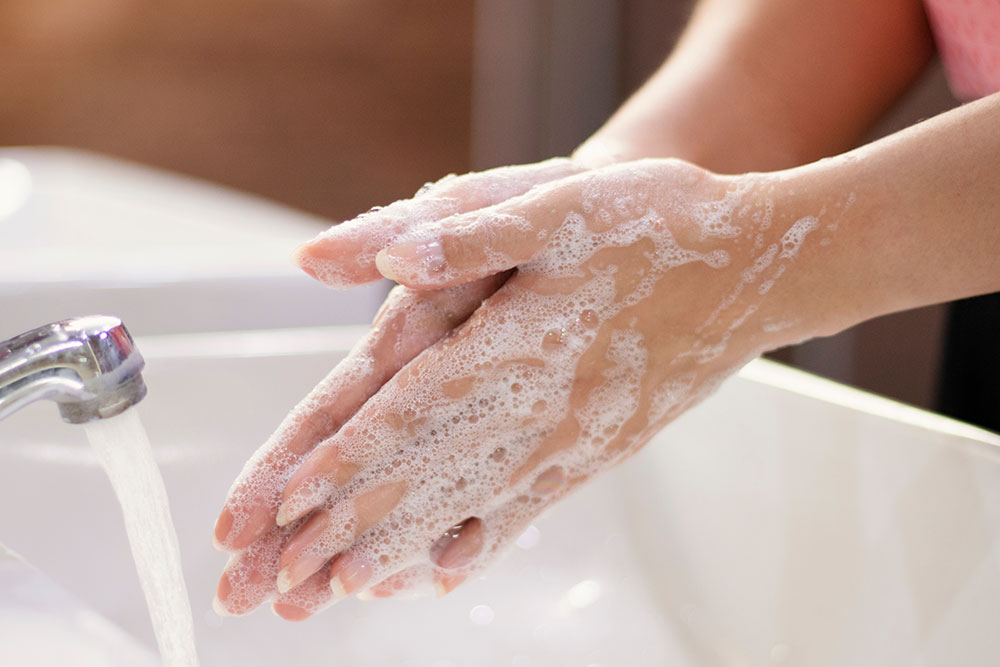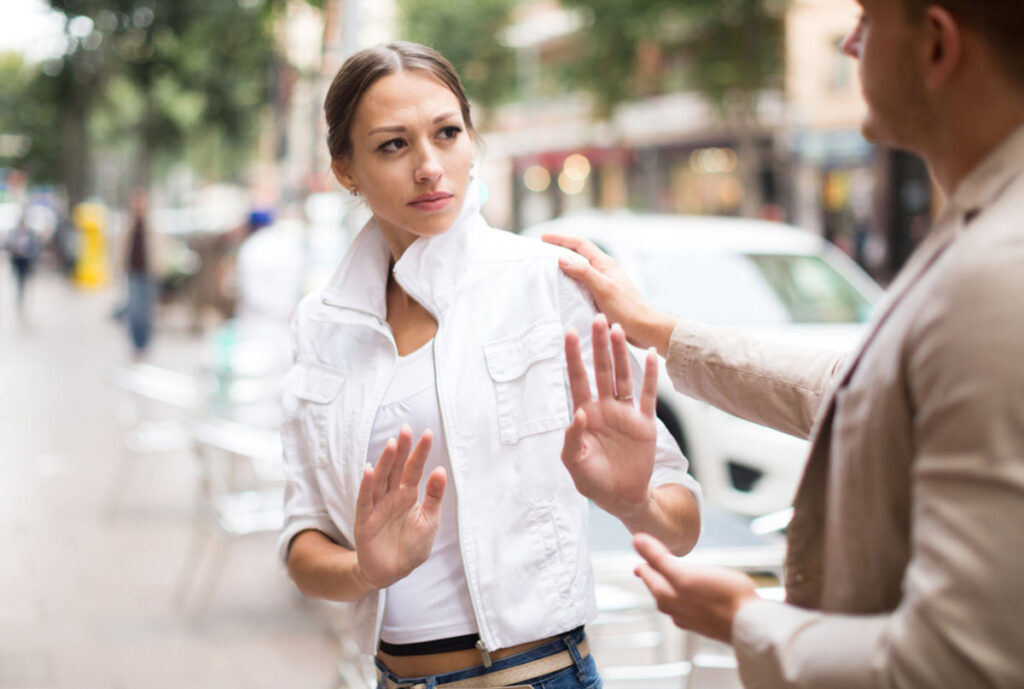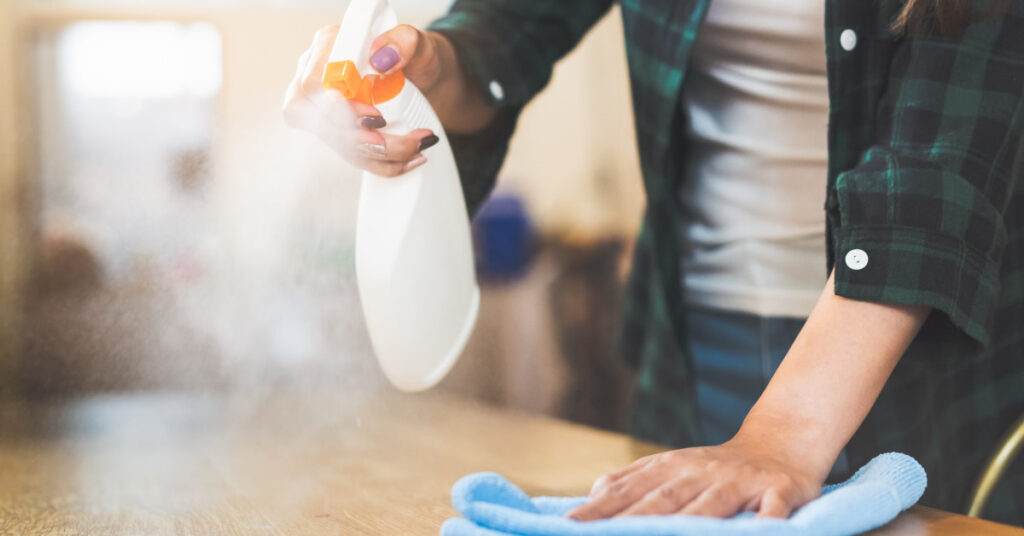
While it may feel like the coronavirus (COVID-19) pandemic has ground the world to a halt, the fact of the matter is that life does go on. While unnecessary travel is not advised during this containment phase of the coronavirus, there are many of us who will need to travel to be with loved ones, for work, or any number of other reasons.
If you do need to travel, what can you do to protect yourself against coronavirus while on the road? Here are the four most important things that you can do.
1. Wash Your Hands Regularly and Avoid Touching Your Face

The best thing that you can do to protect yourself from coronavirus, whether traveling or not, is to wash your hands regularly and avoid touching your face.
Coronavirus travels in mucus and saliva. Therefore, to infect you, it must enter through your mouth, nose or eyes. This can happen when you get too close to an infected person, and therefore breathe in their respiratory droplets. However, transfer via contaminated surfaces is a much more common way for people to become infected. An infected person touches a surface, leaving the coronavirus behind. It can live on hard surfaces for up to nine days. You then touch the surface, and then touch your face, allowing the virus to enter via your nose, mouth or eyes.
In order to avoid this kind of transfer you should:
- Wash your hands regularly
Washing your hands with soap and warm water can remove the coronavirus from your skin. You need to wash your hands for at least 20 seconds for this to be effective. You may also wish to use a hand sanitizer, but this is not effective on its own. Only soap and warm water have been shown to effectively kill the virus.
- Avoid touching your face
As the virus enters your body via your nose, mouth and hands, you must touch your face as little as possible. It is surprising just how often most of us touch our faces. Being conscious of the need to avoid this should help, and keeping your hands busy (with something clean and uncontaminated) can also help you break the habit of touching your face.
- Avoid touching communal surfaces
As well as trying not to touch your face, you should avoid touching communal surfaces as much as possible, as this is where coronavirus is most likely to be present. This includes things such as door handles, toilet flushes, and light fixtures. Carry tissues with you to use as a barrier between your hand and the surface for when you do need to touch them.
2. Maintain Social Distance

If you have been watching the news, you have probably heard a lot about social distancing. This is the practice of maintaining a safe distance from others in order to avoid breathing in their potentially infected respiratory droplets. In general, this means avoiding large gatherings of people, don’t go anywhere you don’t need to be, and if possible, maintain a distance of at least 1.5 meters from others.
Maintaining social distance while traveling can be difficult, as planes, trains and automobiles are generally cramped spaces. Travel companies are doing their best to support social distancing on their services. For example, they leave spare seats between passengers on a plane whenever possible.
Respect social distancing while traveling and try and maintain as much space as possible between you and fellow travelers. Also make your travel plans accordingly. Don’t expect to spend the day at a major national museum or browsing shopping centers, activities that require unnecessary social contact.
While traveling, you will very likely see other travelers wearing medical face masks to try and avoid breathing in the respiratory droplets of others. However, these are not as effective as they seem. Face masks are designed to stop your respiratory droplets escaping from you and infecting others, rather than protecting you. When it comes to your protection, they may do more harm than good as they encourage us to touch our faces more often as we adjust the mask. Moreover, panic buying of face masks is leading to procurement shortages in hospitals, where they are really needed.
If you are displaying symptoms of coronavirus, by all means, wear a face mask to protect those around you. If not, other forms or prevention are more effective.
3. Disinfect Surfaces and Watch What You Use

When traveling, on planes and buses, you are exposed to surfaces and other materials that a lot of other people have used. Thus, you have a higher likelihood of bearing traces of coronavirus. As well as avoiding touching anything that you don’t need to touch, it can be a good idea to disinfect the surfaces directly around you.
On airplanes, you should be focusing on tray tables, touchscreens, and armrests. In hotels and other accommodation, look at door handles, light switches, countertops, and television remotes. Ideally, these things should be wiped down with detergent and warm water. But assuming this is not always available, disinfectant wipes that contain at least 60 percent alcohol is a good backup.
Make sure you look at the packaging of whatever you use. Take note of how long a surface needs to remain wet for the wipes to be effective. Also, avoid the urge to wipe down upholstered seats. Leaving the fabric wet can make it a breeding ground for other types of germs.
Be extra careful when using public facilities such as toilets. You may think that the last thing you do before leaving a bathroom is to wash your hands. In fact, after that, you touch the faucet, hand dryer, and door handle, all of which are major virus transfer risks. Bring tissues with you to act as a barrier between these surfaces and your hands when you are using them.
4. Select Your Accommodation Wisely

While hotels and other accommodations are stepping up their cleaning and hygiene routines in response to the virus, some accommodations will still be safer than others when it comes to traveling. While staff will be wearing gloves and will have been told to stay home if they are displaying any symptoms, anyone who is not aware that they have the virus could unwittingly be breathing infected respiratory droplets into your food. It is best to stay somewhere that you can control your food safety.
For obvious reasons, hostels and other dorm accommodations should also be avoided. It is much more difficult to maintain social distance and avoid touching common surfaces in these types of shared accommodations.
Staying in a short-term or long-term rental, which are mostly self-catered accommodation is preferable. You can easily prepare your food, maintain hygiene to reduce the risk of any infection. It is best to stay in a place where you can control your space, and have as few other people as possible entering your space.
At Viagem, we make sure our guests understand that handwashing and the use of proper disinfectant is the best way to prevent the spread of the virus. We also ensure that we provide you with the household cleaning and disinfecting products and materials you will need during your stay. Before our guest arrives, we ensure that everywhere especially the high-touch surfaces are properly cleaned and disinfected. Our housekeepers are trained not only to wipe down every surface during cleaning, but to ensure the proper chemicals are used in the process. The CDC has come up with an approved list of chemicals that are able to not only remediate the disease, but can defeat even stronger viruses, which we are using in the apartments.

